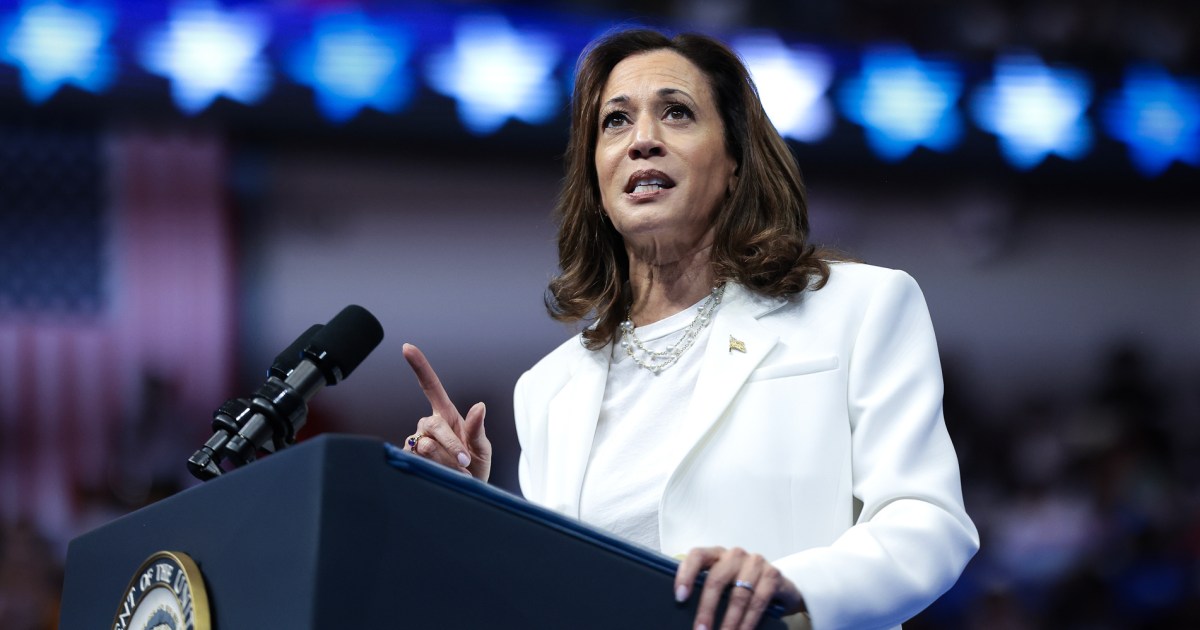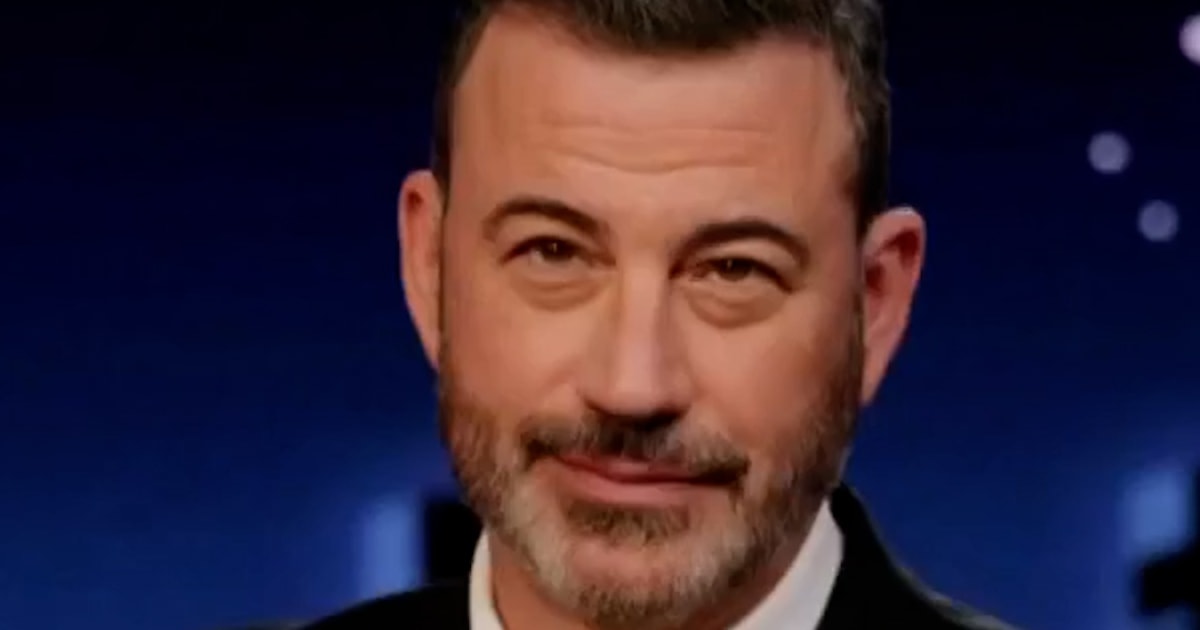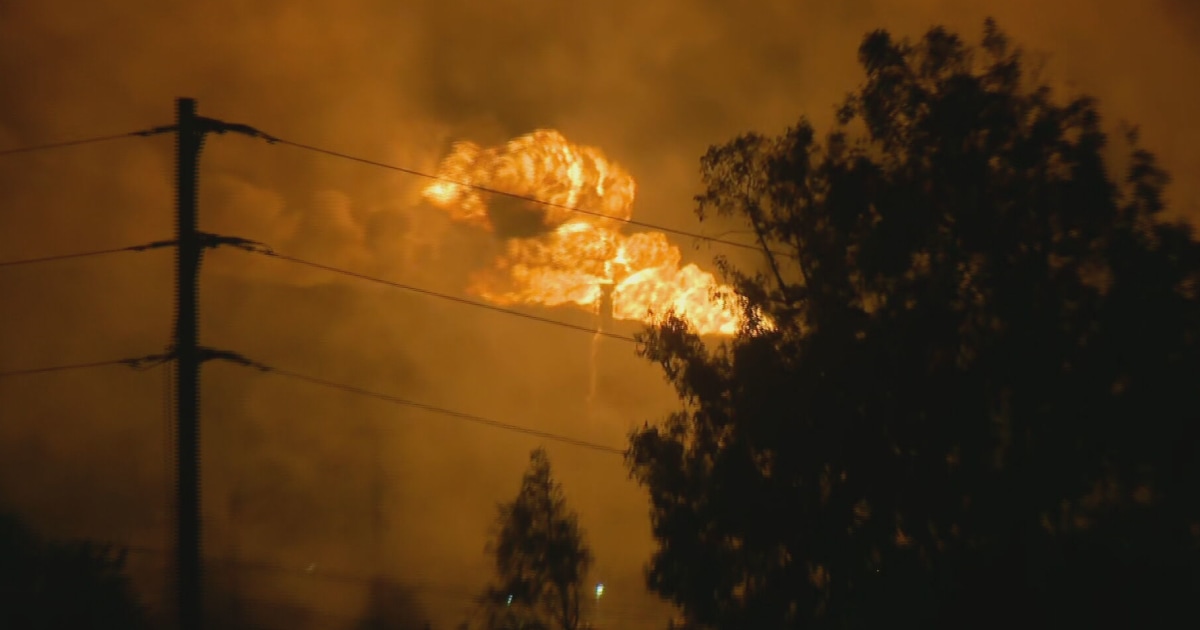In her new book, Kamala Harris dishes on Democratic leaders who were slow to endorse her, frustrations with Joe Biden and regrets from the 2024 campaign.
Source link
Sept. 23, 2025, 12:01 AM EDTBy Natasha Korecki and Jonathan AllenFormer Vice President Kamala Harris’ memoir of her failed 2024 campaign for the Oval Office skewers some of the nation’s most prominent Democrats — including former President Joe Biden — offers her perspective on crucial moments in the election and outlines her own regrets about her decisions and performance.Published by Simon & Schuster on Tuesday, “107 Days” zooms in on the narrow window during which Biden abruptly handed her the reins of the Democratic nomination and she lost to Donald Trump.The book is notable among election memoirs in its often candid assessments of figures who are still active in politics and in the possibility that Harris will use it as a launch pad for a third bid for the presidency in 2028. Harris also ran in the 2020 Democratic primaries but abandoned her bid before the first votes were cast.She opted this year to forgo a run for governor of California, and allies say that decision was made in no small part to keep the door open to a presidential campaign.In one newsy nugget, Harris writes that Biden first asked her whether she would be willing to take his spot atop the ticket if he stepped aside. The two were sitting in the Situation Room at the White House after a briefing on the failed July 13 assassination attempt on Trump, and Biden raised a topic he hadn’t discussed with her before.“If for any reason I had to drop out, I would support you, but only if that’s what you want. It’s occurred to me I haven’t asked you,” Biden said, according to Harris’ account. She writes that he had “clearly rehearsed the speech, it wasn’t spontaneous thought.”Harris recalls replying: “I’m fully behind you Joe. But if you decide not to run, I’m ready. And I would give it all I’ve got, because Trump has to be beaten.” She writes that Biden didn’t raise the possibility with her again until nearly a week later, when he called to tell her he was leaving the race.Biden’s spokesperson didn’t immediately respond to a request for comment.Here’s some of the rest of what you’ll find in Harris’ new book.Resentment toward Biden Early on in “107 Days,” Harris describes her sentiments toward Biden as she spoke to her campaign staff for the first time in late July at the Wilmington, Delaware, headquarters.“My feelings for him were grounded in warmth and loyalty, but they had become complicated, over time, with hurt and disappointment,” she writes. In detailing her conversation with him when he dropped out, she recalls Biden’s wanting to wait days to endorse her so national attention would focus on him for a while — a plan she talked him out of, believing it would have hurt her ability to lock down the delegates she needed to secure the party’s nomination. When Biden spoke to the nation later that week to explain his decision, she writes, “it was almost nine minutes into the eleven-minute address before he mentioned me.” She took similar umbrage at Biden’s speech at the Democratic National Convention in August. “He spoke for nearly an hour, detailing the accomplishments of our administration,” Harris writes. “It was a legacy speech for him, not an argument for me, and he was entitled to it. But if we waited for some personal stories about working with me and what qualities he had seen that led him to endorse me, they weren’t there.” Silent anguishIn the book, Harris bemoans her choice not to question Biden’s decision to run again for president. She lays out some of her reasoning at the time.”Of all the people in the White House, I was in the worst position to make the case that he should drop out. I knew it would come off to him as incredibly self-serving if I advised him not to run. He would see it as naked ambition, perhaps as poisonous disloyalty, even if my only message was: Don’t let the other guy win,” she writes.She then refers to what became a poisonous refrain from Democratic insiders: “It’s Joe and Jill’s decision.” “We all said that, like a mantra, as if we’d all been hypnotized. Was it grace, or was it recklessness? In retrospect, I think it was recklessness. The stakes were simply too high. This wasn’t a choice that should have been left to an individual’s ego, an individual’s ambition. It should have been more than a personal decision.” Dishing on DemocratsIt’s unusual for candidates who may run again to call out members of their own party in memoirs, but Harris does just that in this book, drawing on her contemporaneous notes to detail the responses she got from fellow Democrats when she asked for their endorsements the day Biden dropped out. In some cases, like those of Bill and Hillary Clinton, Rep. James Clyburn of South Carolina and Pennsylvania Gov. Josh Shapiro, there was no hesitation.But former President Barack Obama, Rep. Nancy Pelosi of California, the former House speaker, and California Gov. Gavin Newsom were among those who stalled or ghosted, according to Harris. From her descriptions in the book of this group: “Barack Obama: Saddle up! Joe did what I hoped he would do. But you have to earn it. Michelle and I are supportive but not going to put a finger on the scale right now. Let Joe have his moment. Think through timing.””Nancy Pelosi: I’m so sad about Joe. It’s so tragic. My heart is broken. But now it’s you! It’s important there’s a process, we have a great bench. We should have some kind of primary, not an anointment.””J.B. Pritzker: As governor of Illinois, I’m the convention host. I can’t commit.” Pritzker endorsed Harris a day later. “Gavin Newsom: hiking. will call back. (He never did.)” Newsom did endorse Harris hours later, which isn’t noted in the memoir.The wrong veep?Pete Buttigieg says Biden ‘should not have run’ after Kamala Harris calls his bid ‘reckless’01:37Harris writes that her first choice for a running mate was then-Transportation Secretary Pete Buttigieg, a friend who may also be a 2028 rival. “He would have been an ideal partner — if I were a straight white man,” she writes of Buttigieg, who is gay. “But we were already asking a lot of America: to accept a woman, a Black woman, a Black woman married to a Jewish man. Part of me wanted to say, Screw it, let’s just do it. But knowing what was at stake, it was too big of a risk.”Buttigieg pushed back last week in an interview with Politico after an excerpt of the book was released, saying he was “surprised” by her take.”My experience in politics has been that the way that you earn trust with voters is based mostly on what they think you’re going to do for their lives, not on categories,” he said.Harris ended up choosing Minnesota Gov. Tim Walz, whom she describes as a balance to her in terms of background.Of the three finalists, she passed over Shapiro, whom she described as “poised, polished, and personable” in their one-on-one interview. But Harris was taken aback when, according to her telling, Shapiro said he wanted to be in the room for every decision.”I told him bluntly that was an unrealistic expectation,” Harris writes. “A vice president is not a copresident. I had a nagging concern that he would be unable to settle for a role as number two and that it would wear on our partnership.”And, she added, “I had to be able to completely trust the person in that role.”Josh Shapiro says he raised concerns with Biden as Kamala Harris blasts his 2024 bid03:17Sen. Mark Kelly, D-Ariz., the former astronaut, was the remaining finalist, and Harris writes that she respected his public service in the military and in government. But she worried about his ability to handle the mudslinging of a campaign.”He also hadn’t yet had an ‘oh s—‘ moment,” Harris concluded as she interviewed Kelly, whose wife, former Rep. Gabby Giffords, D-Ariz., narrowly survived a failed assassin’s bullet to the brain. “I wasn’t sure how he would cope with the kind of garbage Trump would throw at him.” Dismissing Trump’s jabsHarris says repeatedly that she took some of Trump’s more personal attacks as signs that he was worried about her and that she tried not to take what she saw as bait.In July, when Trump questioned whether she is Black or Indian — her father is of Jamaican descent and her mother is of Indian descent — she didn’t like adviser Brian Fallon’s suggestion that she give a speech about race like a famous address Obama delivered during his 2008 campaign.”I was so pissed I didn’t hold back,” recalls Harris, who was aboard Air Force Two, talking to Fallon by phone. “Are you f—ing kidding me?” she says she told Fallon. “Today, he wants me to prove my race. What’s next? He’ll say I’m not a woman and I’ll need to show my vagina?”Regrets, she had a fewChief of which was her response to the ill-fated query on ABC’s “The View” about what she would have done differently from Biden: “There is not a thing that comes to mind.” Trump’s team jumped on the response, which would haunt her until Election Day. “I had prepped for that question; I had notes on it. There was the answer I’d given in the debate: ‘I’m not Joe Biden and I’m certainly not Donald Trump.’ I had a note that I was a new and different generation. And I had this: ‘But to specifically answer your question, throughout my career I have worked with Democrats, independents, and Republicans, and I know that great ideas come from all places,” she writes. “If I’m president I would appoint a Republican to my cabinet. But I didn’t say any of that.” Harris writes about several regrets surrounding her first interview as the Democratic nominee, a joint session with Walz, hosted by CNN’s Dana Bash. She wasn’t happy with an alignment of chairs that emphasized Walz’s physical stature over hers, and she was disappointed in her own answers to several of the questions. Most of all, she writes, she shouldn’t have agreed to appear for the first time in an interview with her running mate at her side.”Having Tim there beside me, in hindsight, was an error,” she writes. “My campaign felt we should do the interview in tandem because it was a thing that had been done by prior candidates and their running mates. But because we’d waited to do this interview, there was so much riding on it. And the plan to have him there fed a narrative that I wasn’t willing or able to go it alone.”While she wouldn’t rewrite her position on defending transgender people, she notes she could have struck back at anti-trans ads running in battleground states with more precision. “I do not regret my decision to follow my protective instincts. I do regret not giving even more attention to how we might mitigate Trump’s attacks. Character matters. I wish I could have gotten the message across that there isn’t a distinction between ‘they/them’ and ‘you.’ The pronoun that matters is ‘we.’ We the people. And that’s who I am for.”The Joe Rogan of it all Harris spends some ink explaining how the decision not to go on Joe Rogan’s popular podcast went down. At the time, there was much ado about a Rogan invite, whether she declined and whether it hurt her politically. She never was on, while Trump spent hours appearing on an episode, which today has 60 million views. “On the eve of the election, Rogan endorsed Trump. Since then, he has lied on his show, claiming we pushed for tight topic restrictions,” Harris writes. “He even claimed that the very topics we had suggested were ones we’d refused to discuss. His team says we ‘never committed,’ which is accurate, but misleading. The plain truth: I wanted to go on Joe Rogan’s podcast on October 25. He chose Trump instead.”The Biden scourgeIt seemed that each time she was grabbing momentum, Biden would derail the campaign, emerging in the news with one inexplicable misstep after another. She describes the moment Biden briefly wore a MAGA hat — in an image that then went viral. “Joe was sharing a joke with some guys in MAGA hats. One of them took his hat off and offered it to Joe.”Don’t take it.”He took it.”Don’t put it on.”He put it on.” She said that within hours, images exploded of Biden wearing the hat accompanied by a caption: ‘Biden endorses Trump over Harris.'”At another campaign high, she was coming off a speech at the Ellipse in Washington, D.C., which drew tens of thousands of people. As she was still en route to celebrate, the news from a Biden call started circulating that he had called Trump’s supporters “garbage.” That supplied Trump with fresh fodder going into a critical weekend.Harris, though, relayed that ultimately her feelings toward Biden would remain loyal. “I was still vice president to President Biden. We had three months left of our administration. Even after the lack of support from the White House, the debate night phone call, and the MAGA hat debacle, I felt I owed him my loyalty.”No signs of what’s nextHarris reveals nothing about her 2028 aspirations except that she has learned that changing the system from within isn’t possible. “In this critical moment, working within the system, by itself, is not proving to be enough. I’ll no longer sit in DC in the grandeur of the ceremonial office. I will be with the people, in towns and communities where I can listen to their ideas on how we rebuild trust, empathy, and a government worthy of the ideals of this country.”Natasha KoreckiNatasha Korecki is a senior national political reporter for NBC News.Jonathan AllenJonathan Allen is a senior national politics reporter for NBC News.




